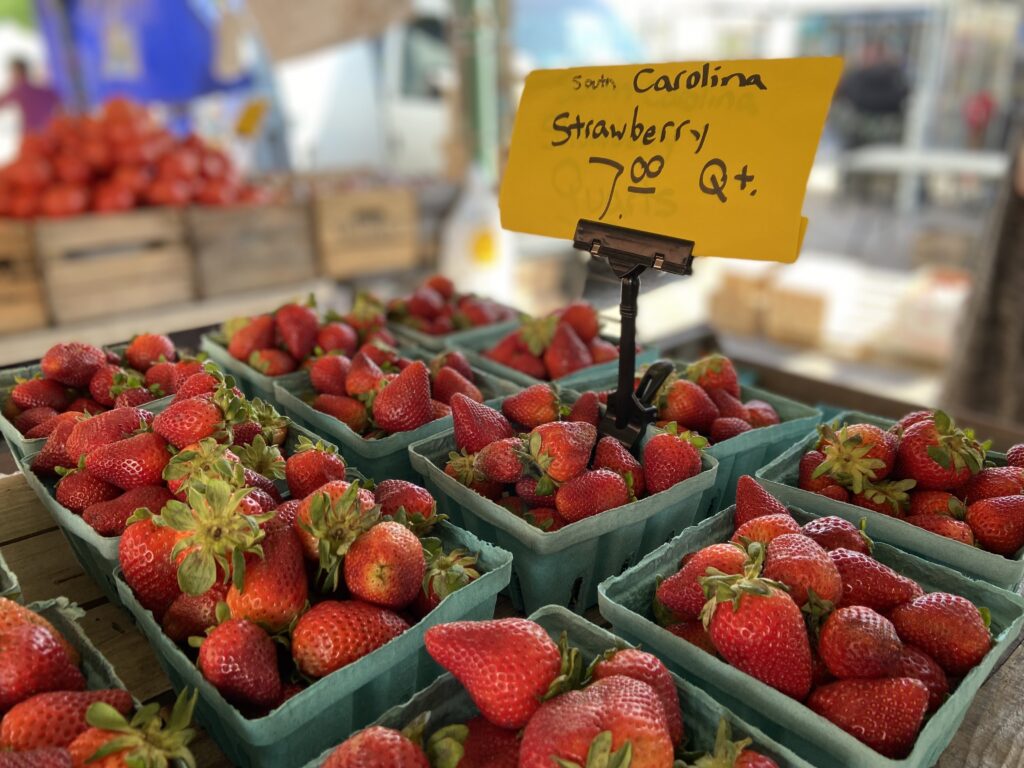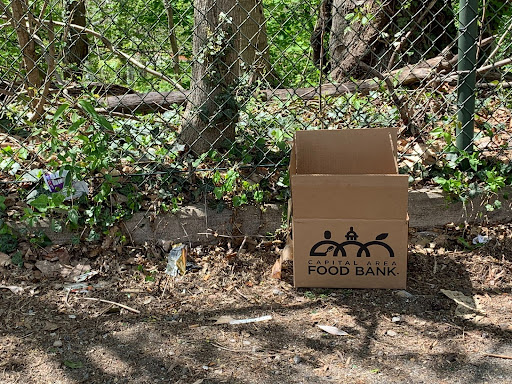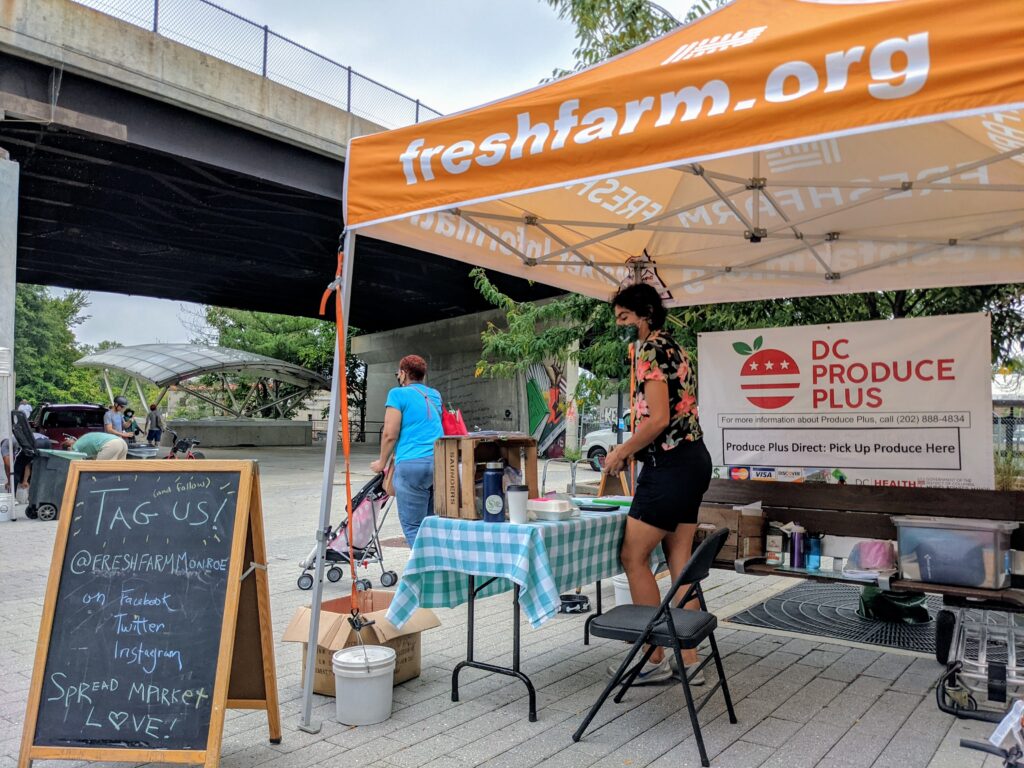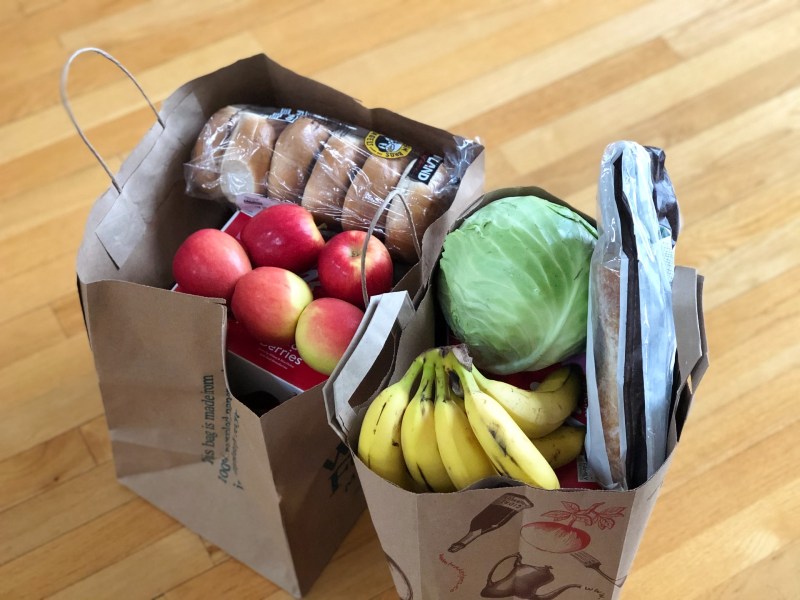Alicia Burke was strolling through a farmer’s market in Jamaica when she came across something she had never seen before. It was 2017, and Burke, a native Washingtonian with a degree in information technology, had just begun working for Capital Rich Concepts, a D.C.-based community nonprofit her father founded in the seventies. Not long after she started, however, Burke found inspiration from an unlikely source: a piece of produce. The transformative fruit was not a casaba or a guinep or an achi or a tamarind.
“It was the first time I ever saw a yellow watermelon,” she said. “It opened my mind.”
An epiphany descended on Burke like a sudden jolt upon beholding it. This is what people meant when they spoke about food accessibility.
“The fruits and vegetables that’s in the grocery store are not even all the varieties the produce world has to offer,” she said. “There’s so much more produce that we could have available for D.C. residents.”
It wasn’t just the fruit. There was something special about the way people interacted with the food they consumed, she thought. A year after returning from the Caribbean, Burke helped launch VeggieCity DC, a 501(c) 3 nonprofit with a staff of about 12 employees and 50 volunteers that aims to deliver fresh vegetables and produce to areas in the city known as “food deserts.”
A food desert is a “low-income tract where a substantial number or substantial share of residents does not have easy access to a supermarket or large grocery store,” according to the U.S. Department of Agriculture. While D.C. has approximately 150 full-service grocery stores, only three of them operate in the food deserts of Wards 7 and 8, according to a 2021 study conducted by DC Hunger Solutions.
Last month, VeggieCity DC received a $50,000 award from the Nourish D.C. Collaborative, a partnership between the D.C. government and Capital Impact Partners, a community development financial institution based in Arlington, Va. The collaborative awarded a total of $400,000 in grants to nine different businesses located in Wards 5, 7 and 8 to address the ongoing problem of food accessibility.
Burke, who currently serves as the vice president and director for VeggieCity DC, said the recent grant will help it hire more staff and expand to more access points in the city.
Though the city has been providing a variety of incentives and grants to encourage grocery stores to move into food deserts for years, these efforts had not been as effective as they intended, according to Ona Balkus, the food policy director for the D.C. Office of Planning.
“We were seeing that a lot of smaller businesses and D.C. resident owned businesses really couldn’t compete for those grants,” she explained.
In other words, the grant amounts were far too large for smaller-scale companies to handle. The city needed a different model.
Balkus heads the D.C. Food Policy Council, a board appointed by the mayor to develop and recommend food policy. She said that for the past several years, the council has been researching ways to build wealth in underserved communities while expanding food access. They came up with the idea of building a collaborative between local public and private enterprises to address this issue.
Known as the Nourish D.C. Collaborative, this idea is modeled after a similar effort in Michigan called the “Good Food Fund,” according to Balkus. The fund in Michigan is structured as a state-wide lending network intended to encourage businesses to expand access to healthy foods in underserved areas. Similarly, the D.C. collaborative hopes to help local businesses gain access to the resources they need to address the issue of food deserts. Aside from funding, the collaborative also provides loans, business assistance and training.
Burke grew up in and around food deserts in D.C., though she did not realize it at the time.
Throughout Burke’s childhood she lived in the Northwest D.C. neighborhood of Bloomingdale while attending schools in Georgetown and Capitol Hill. After school, she would often visit friends who lived in Ward 7 and 8 where there was only one grocery store at the time, according to Burke. Years later, she would come to understand that the places she grew up habitually lacking access to diverse healthy food were known as “food deserts.”
During the past couple years, she said that one of VeggieCity DC’s most popular services has been grocery delivery to residents living in neighborhoods throughout Wards 7 and 8. In Burke’s view, people often overlook the needs of residents who may not have ready access to transportation. She also said that pregnant mothers and senior citizens rely heavily on their services.
“We’re just trying to make sure that food is one thing D.C. residents in Wards 7 and 8 don’t have to worry about,” she said.







